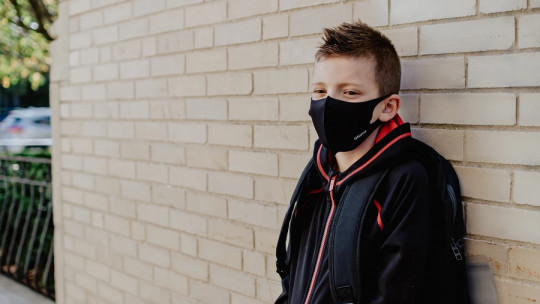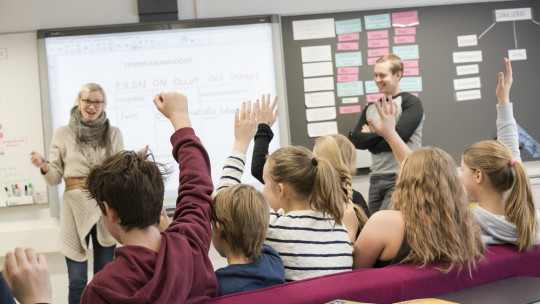
In the context of the COVID-19 crisis, one of the most radical changes that has occurred is the need for many educational systems to adapt, in a matter of weeks, to a situation in which infections must be minimized.
And in many cases, such as Spanish, this means starting to take online classes. Something logical if you take into account that our country is one of those that is coming out worst in terms of the number of infected, on the one hand, and that the virus spreads quickly in closed spaces where there are many people, on the other. other.
Now… what do we know about the effectiveness of teaching over the Internet? Let’s see what they are the positive and negative implications of using exclusively (at least for a few months) an online education model
Advantages and disadvantages of online education
Here we will review the possible advantages and disadvantages of the online teaching system applied to children and adolescents, especially in the context of the social and health crisis situation caused by the pandemic, and without losing sight of the fact that what happens in education is not disconnected from what happens outside the classroom
Of course, first of all it is necessary to clarify two things. First of all, it must be recognized that there has not been a large amount of conclusive research on all the positive and negative effects of distance education on people of all ages in a context of pandemic and general confinement measures. So, these are ideas about what is likely, not about what is certain to happen.
Secondly, it is necessary to highlight that possibly the fact of using a face-to-face teaching model, or one that is online, is not as important as the fact of whether it has been possible to plan in advance what may occur during the course, avoiding interruptions. and unnecessary transitions from one modality to another. It is very important that the education system is stable and everyone knows what to expect from it in the medium term; The intermittency between stages of daily classroom attendance, and others in which weeks go by without going to class, may not be desirable
Having said the above, let’s look at the pros and cons of online teaching.
Disadvantages
In this section we will review several of the possible drawbacks of online classes for education for children and adolescents.
1. A barrier when it comes to socializing
All human beings in general tend to need to have moments of socialization ; and in the case of the youngest members of the house, this is even more important, because play is their “default” way of interacting with the environment and with others.
Furthermore, in the case of adolescents, the possibility of interacting in groups of friends on a regular basis is important for the development of their identity, given that their behavior is highly mediated by the feeling of belonging to groups and by references of their age, and in some cases, a little older than them, but always outside the world of adults.
Not leaving home means assuming limitations in this regard. And we must not forget that playground time and breaks between subjects are as much a part of the educational process as the teaching sessions
2. A context that does not prevent the appearance of distractors
As students, something as simple as being in class provides incentives to not be close to elements that can distract us.
This is something that occurs to a greater or lesser extent at all ages; Being in sight of the teacher discourages students from evading completely and browsing the pages of their social networks from their mobile phone, for example. In online sessions, it is more difficult to force yourself to pay attention, since each student can do practically whatever they want while the teacher teaches the lesson.
3. Online classes can demotivate students by not being able to participate as before
Of course, nothing requires online classes to be sessions in which the teacher speaks and the students remain silent. But it is true that The change of modality can “dislocate” some students and make them not feel as involved in what happens and what is said during the lessons, producing an emotional disconnection.
Technically the contents do not change much, but the feeling of “going to school” is no longer the same nor is it familiar. As a consequence of this, some people may abandon learning dynamics that they had adopted and that were beneficial.
Let’s think, for example, of a student who used to consult his doubts with the teacher. Given the change of scenario, this will no longer be so simple, since now he will have to contact the tutor through other means, which can make him demotivated and, out of laziness, give up asking his questions. Obviously, in the online mode he can also ask, raising his hand, but The change may be somewhat disconcerting, and possibly cause you not to make your inquiry
Advantages
These are some of the potential advantages of distance education for young people.
1. Provides security against the spread of viruses
There are more and more children with anxiety symptoms, even with disorders such as enuresis, due to the anxiety caused by the pandemic. The possibility of “going to school” without putting themselves or their families at risk It acts as a psychological protection factor for children who are more prone to developing anxiety and stress problems.
It is also a way to protect older students, who are also the ones who subsequently tend to have the most social contacts, both inside and outside the family.
2. Opens education to a flexible and audiovisually enriched environment
Online classes break with the idea that lessons are by default sessions based on speaking in front of a blackboard. This can be beneficial if you take advantage of the potential of the virtual world, which is full of educational material such as infographics, videos, and even simulations. In addition, debate forums also provide a space in which it is possible to review content through argumentation.
3. Predisposes you to “learn to learn”
One of the fundamental aspects of education is giving the tools to “learn to learn.” That is, develop the necessary skills to internalize knowledge in efficient and safe ways.
The Internet environment is ideal for this, since getting used to browsing it means that, without realizing it, we remember “shortcuts” to reach relevant content when reviewing during study sessions, and it also provides places in which We know that, if a doubt strikes us, we will probably find the answer: scientific blogs, Reditt pages in which experts on a topic answer questions, etc.
All of this enhances learning even beyond the expectations set by the school, encouraging a self-taught attitude. It is the best way for students to realize that learning is not just about reviewing notes and reviewing the textbook.
Are you looking for professional psychological assistance?

If you are interested in having the services of a team of psychologists fully trained in all areas of human behavior sciences and mental health, contact us.
In Awakenings Consultation Psychological Center We work offering both psychotherapy for people of all ages and counseling for parents and family therapy, among other services. You can find us in our centers in Madrid, Leganés, Móstoles and Getafe. We also serve through the online therapy format by video call. You will find more information about how we work, as well as our contact details, on this page.








